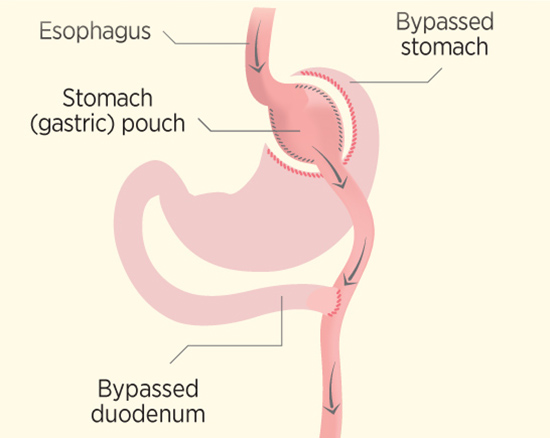Roux-en-Y Gastric Bypass

Roux-En-Y Gastric Bypass (RYGB), commonly known as gastric bypass, involves closing off the majority of your stomach, leaving just a small pouch that is the connected to the lower part of your small intestine.
This physically reduces the size of your stomach, limiting the amount of food you can eat, and bypasses a portion of the small intestine so you don’t absorb as many of the calories you consume. It also bypasses gut hormones that control feelings of hunger and fullness, allowing you to feel full faster and longer
The shortened digestive process also means that there is a risk of gastric dumping if you eat too much or too quickly or consume something with a very high fat or sugar content. Dumping means that the food moves through your system too quickly, causing nausea, bloating and diarrhea.
You can expect to lose up to 70% of your excess body weight within the first year after gastric bypass surgery. Because this is a complicated surgery, your hospital stay may be longer (up to two days) and there is a slightly higher risk of complication from the surgery.
The surgery is performed laparoscopically, and the healing time for your stomach requires you to strictly follow your post-operative instructions for maintaining a liquid diet for a period of time before introducing solid foods.
